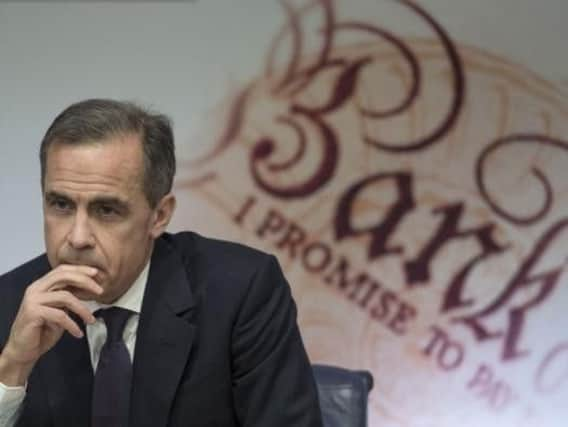Interest rates set to stay at seven year low


It will reveal at mid-day this month's decision on interest rates, and minutes disclosing how the Monetary Policy Committee (MPC) voted.
Members of the MPC are expected to vote unanimously in favour of leaving interest rates at the current level of 0.5 per cent, where they have remained since March 2009.
Advertisement
Hide AdAdvertisement
Hide AdThe MPC has been united in its decision since sole dissenter Ian McCafferty changed his position in February from raising rates to 0.75 per cent to keeping them on hold.
Economists are now predicting rates to stay at 0.5 per cent until 2017, with some envisaging a rate rise to come even sooner if Britain votes to stay in the European Union.
The Bank has been in no hurry to raise rates, with inflation remaining historically low and way off the Government's 2 per cent target.
But it was disclosed on Tuesday that the Consumer Prices Index (CPI) inflation rose to its highest level for 15 months in March, stepping up to 0.5 per cent.
Advertisement
Hide AdAdvertisement
Hide AdHowever, concerns over a UK economic slowdown, turbulence in the markets and the gloomy outlook for global growth have led some experts to predict the Bank may loosen monetary policy if the economic outlook worsens.
A series of Markit/CIPS surveys covering the manufacturing, construction and services sectors have pointed to a slowdown in gross domestic product (GDP).
Economists now predict growth will ease back to 0.4 per cent in the first quarter of this year, despite the ONS recently revising up its figures for UK economic growth to 0.6 per cent in the fourth quarter and to 2.3 per cent for 2015 as a whole.
Meanwhile, concerns have also been mounting that the UK economy could be left exposed if Britain leaves the EU after its current account gap hit a record high in the fourth quarter.
Advertisement
Hide AdAdvertisement
Hide AdThe Bank had warned in March that uncertainty over the EU referendum could hit the UK economy.
It said the forthcoming vote on Britain's EU membership may "delay some spending decisions and depress growth".